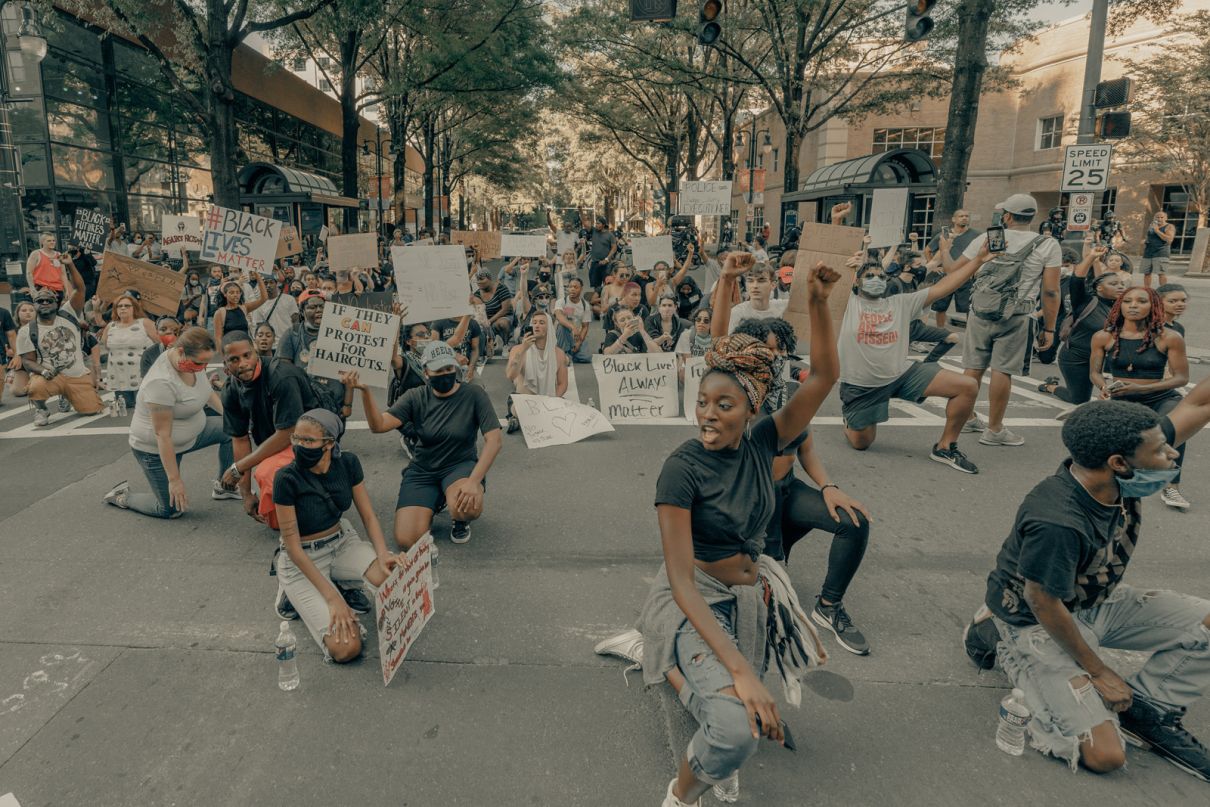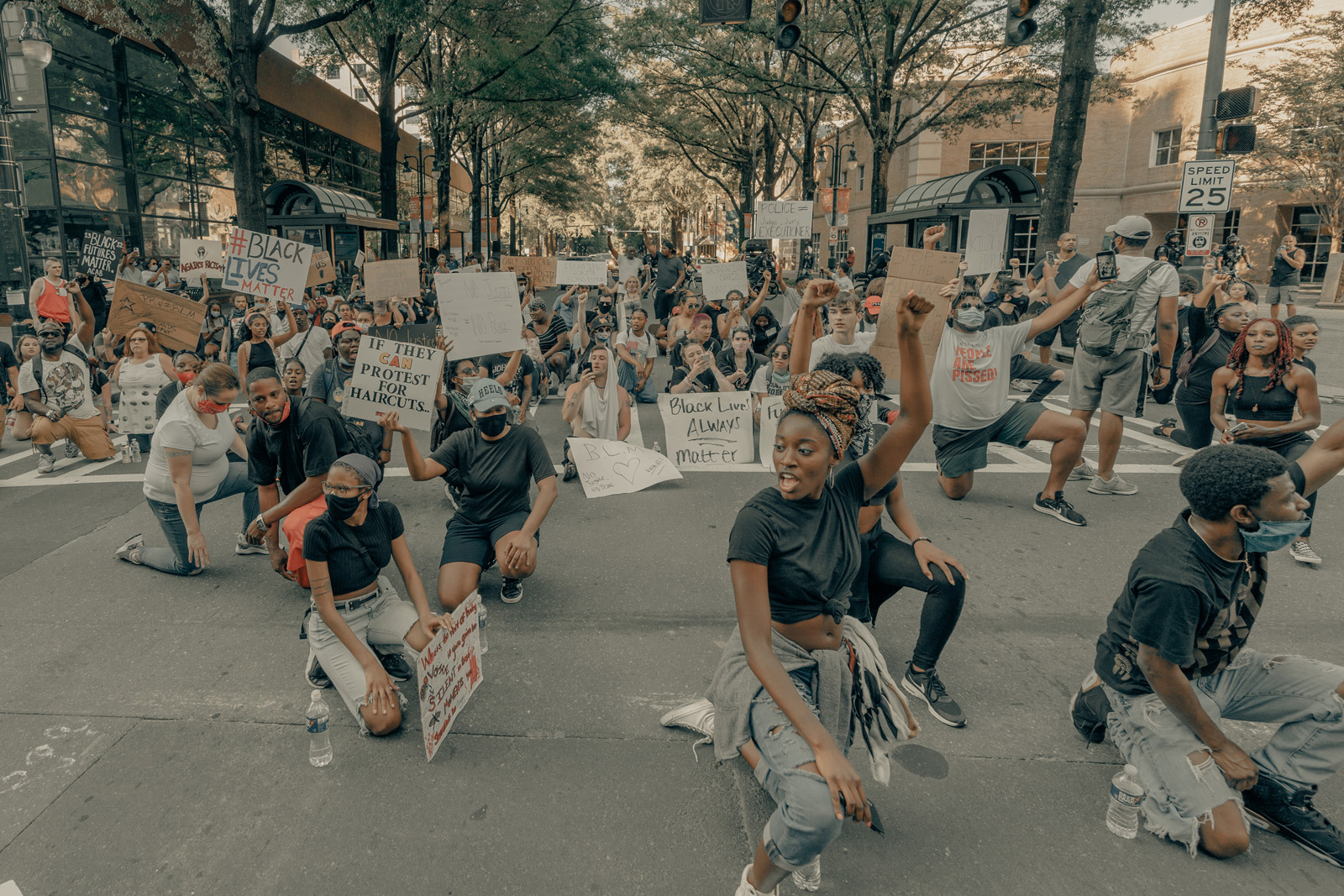Impact Investors Speak Out For Racial Injustice

Entrepreneurs and impact investors can go a long way in changing the racial dynamic.

Protests rocked Seattle and beyond this week, in reaction to the death of George Floyd and the wider anger over police killings and racism. The social media sphere has also been in uproar as, through tweets and posts, individuals and organisations call for change. Many, including former President Barack Obama, point out that while a police investigation and overhaul is urgently needed, the demonstrations will only be truly successful if they can drive a permanent shift in equality.
As global governments look to be mired in debt following the coronavirus crisis, many believe that impact investment will play a key role in changing the race dynamic. Robert Rubinstein, chairman and founder of TBLI Foundation, a platform helping to build the profile of impact investment, said impact investment "can go all the way."
He gave his advice for anyone to be at the very least, a "conscious investor". "It's simple. Don't support or invest in any companies that don't have excellent human resources with respect to gender, race, age. And don't invest or fund any companies that work to make the government inefficient through lobbying. And most importantly, pay your taxes!"
Courtesy of Impact Alpha, here we list some of the most insightful posts from impact investors over the last week.
- Corporate action. Making statements and writing a few checks doesn’t cut it anymore. “Throw out the old playbook,” Darren Walker of the Ford Foundation advised corporate CEOs. Walker warns of a growing cynicism about American ideals of opportunity and mobility. “Hope is the oxygen of democracy. We are asphyxiating optimism and hope by our economic policies and priorities that have privileged people like me at the expense of those workers that we now deem essential.”
- Fight and rebuild. “We are with the people calling for a more equitable society and will fight with you every single day,” Mortar, which supports Cincinnati entrepreneurs with physical space and revolving loans, said in a statement. “To the businesses hurt by this we are here as a resource to help you rebuild and come out stronger.” Brick by brick, the firm says, “we will rebuild as a city and country.”
- Back Black women. “It’s so important right now to invest in structural change,” Anne Price of the Insight Center for Community Economic Development said in an online discussion. “How many grants do we get that say you have two years to solve the race problem?” Price urged funders to trust in black women, whose innovative ideas are often dismissed until they are externally validated.
- Walk the talk. “Words can be meaningful, but actions speak louder,” Harlem Capital, which invests exclusively in minorities and women founders, said in a statement. “Actions like texting a Black colleague, educating yourself and your network, speaking up publicly, voting in elections and voting with your dollar are the start of meaningful change.”
- Seek justice and accountability. All hands, and dollars, on deck to support Black lives, says Candide Group’s Morgan Simon, who lays out five ways: "Help Minnesota activists. Fight for police accountability. Address the roots of racism. Help communities heal. Learn more about your local community."
- Just policymaking. “No city in this country has eradicated racism,” says Ben Hecht of Living Cities, which works with foundations and financial institutions to deploy capital to close racial wealth gaps (see ImpactAlpha’s series, “Investing in Racial Equity”). Living Cities announced it will support up to six cities to develop racially just decision- and policy-making.
- Racism is material. Systemic racism is an environmental, social and governance (ESG) issue, says Calvert Research and Management’s John Streur. Corporate diversity and inclusion efforts fall far short of what is needed. The firm will ask companies to report on racial diversity as well as pay gaps across race and gender. “As investors, we need to do a better job differentiating companies based on where they stand on these critical issues, and push hard for positive change,” he says.
- Support CDFIs. “CDFIs are a result of and a response to structural and systematic racism in America’s financial industry,” tweeted Darrin Williams of Southern Bancorp, which has made more than 1,200 loans loans in the Arkansas and Mississippi Delta totaling $110 million via the federal Paycheck Protection Program.
- Unite in humanity. “The cry for change is not new to members of Social Venture Circle,” says SVC’s Valerie Red-Horse Mohl, who asked members to sign a petition from the American Sustainable Business Council pledging to confront racism. “We must unite as humanity to demand deep and serious systemic change.”
- Confront bias. “The same systemic racism that has been amplified in recent weeks also shows itself in the daily ways that people of color, and particularly the Black community, are often locked out of the economy – prevented from getting a loan or securing and investment, a house, a promotion or job, or recently a federal PPP loan,” Village Capital said in a statement. The firm co-hosted the Inclusive Capital Summit in December. “We pledge and recommit to the difficult work of deepening our own understanding of racism and confronting bias within our own organization.”
- Challenge power disparities. We must “acknowledge the gaping disparity in power that communities of color suffer from daily,” Omidyar Network said in a statement. Omidyar Network committed US$500,000 to organizations fighting to protect and advance Black lives. Omidyar Network also has supported Color of Change, Community Change and the National Domestic Workers Alliance, among others. “Until we collectively acknowledge and address this structural problem and other destructive narratives, nothing will change.”
- Hire underestimated talent. “World positive, leading companies are diverse companies,” Obvious Ventures, which invited black talent to apply to 431 active job openings across its portfolio and encouraged Black investors to apply to its open ‘growth partner’ role, said in a statement “We will continue to seek opportunities to advance people of color and those from underrepresented backgrounds to make tech a more inclusive industry.”
- Cut the check. Investors looking to effect change should “Make the hire. Write the check,” said Indie VC’s Bryce Roberts. The firm recently tapped a network of scouts with “voices and backgrounds so often overlooked and undervalued in more traditional investment ecosystems” to source a diverse cohort of investments.
- Ownership matters. “In a country whose wealth was built on the ownership of stolen human beings to work stolen land, ownership must be part of the solution,” says Democracy At Work Institute in a statement. Shared business ownership opportunities can address “the systemic inequities that have plagued Black Americans for generations, and we acknowledge we must all do more.”
- Justice for inclusion. “We cannot credibly build an inclusive economic system without addressing the fundamental injustice, inequity and violence that disproportionately impacts Black people and other People of Color,”said B-Lab’s Anthea Kelsick, who pledged to engage the majority white network of B Corp business leaders “to be vocal and bring explicit conversations about race and racism to all of our stakeholders.”
To read Impact Alpha's full story click here.








